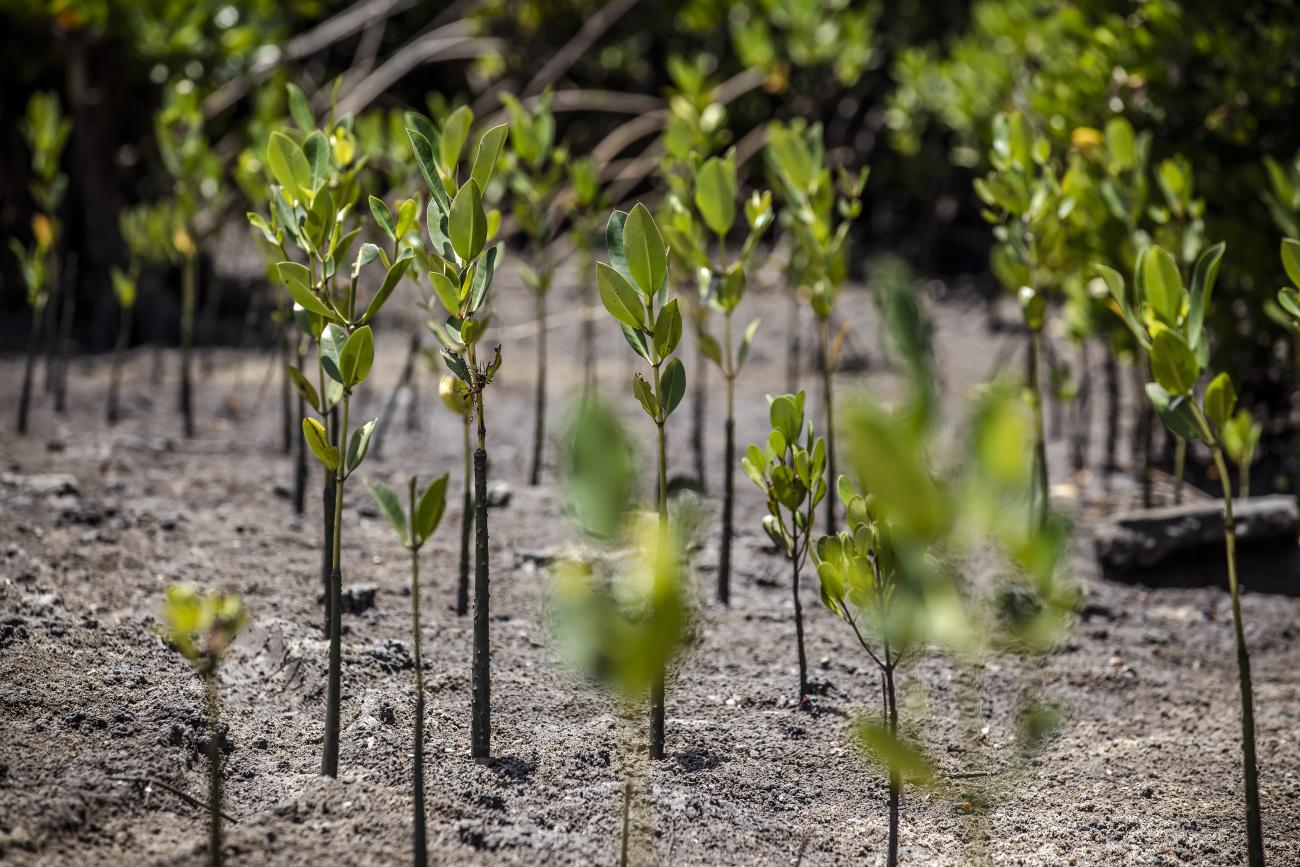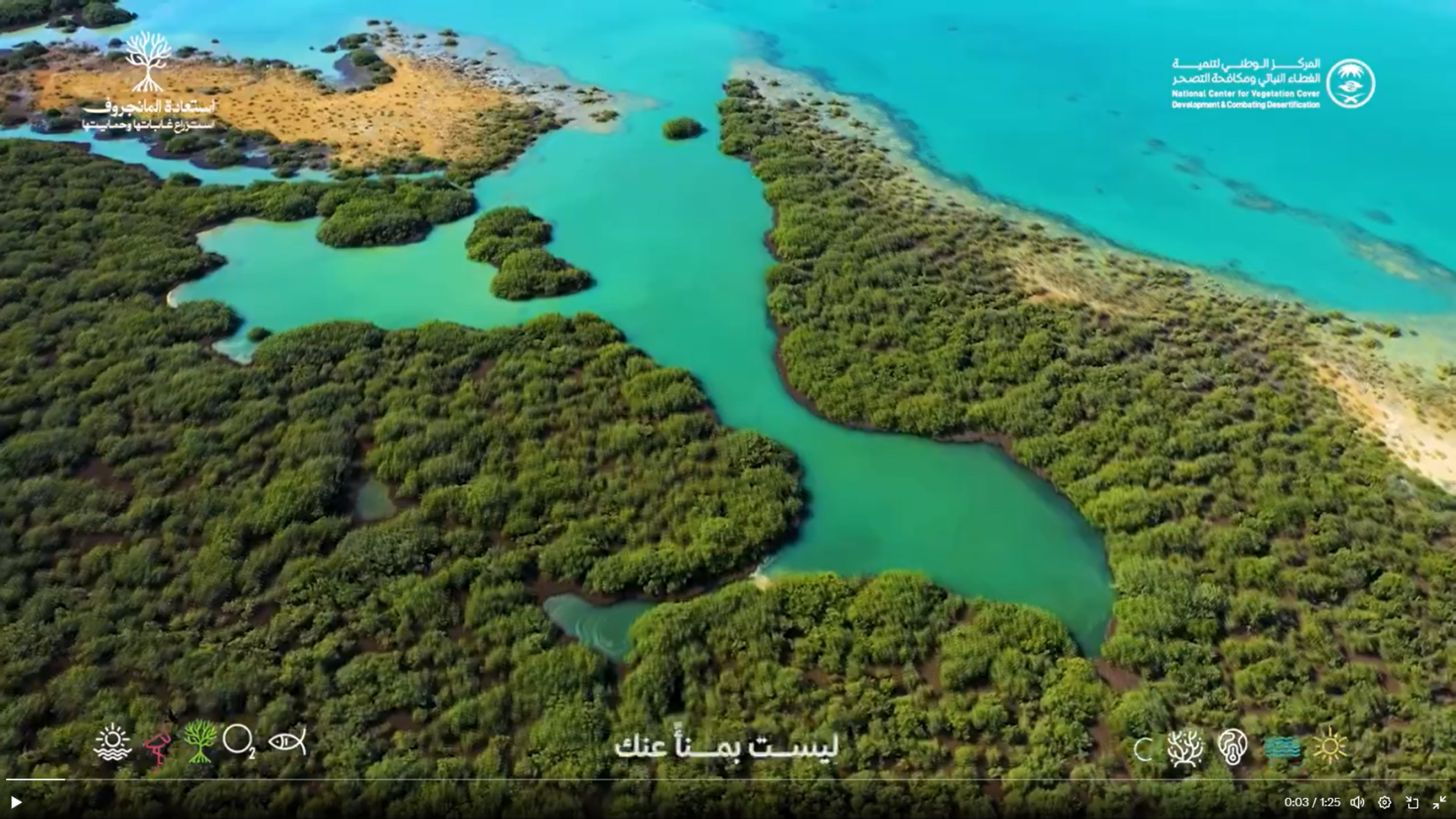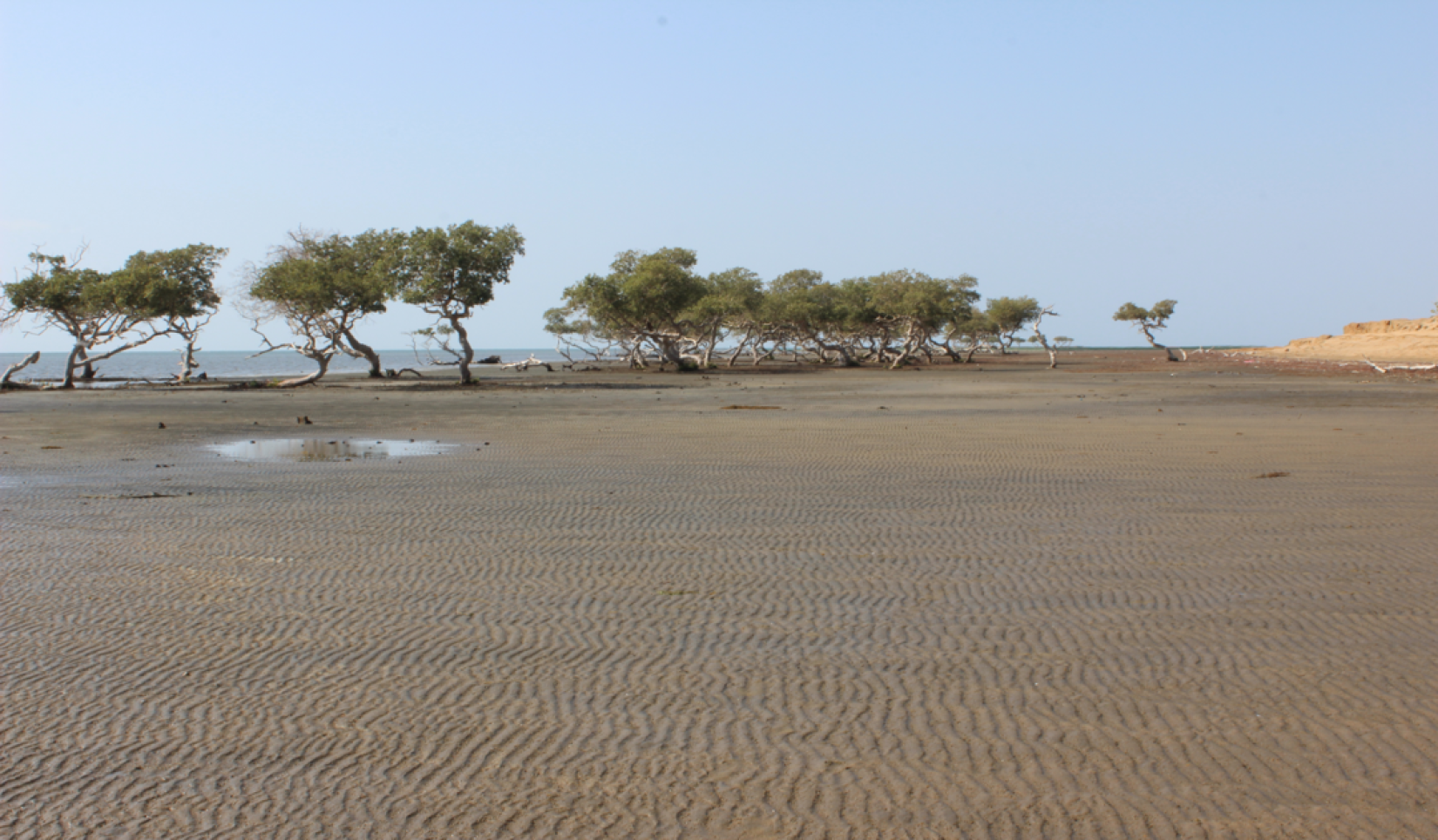Saudi Arabia Empowering Communities and Ecosystems for Sustainable Mangrove Conservation and Management

The International Day for the Conservation of the Mangrove Ecosystem
The coastal mangroves of Saudi Arabia, home to two crucial tree species - Rhizophora mucronata or Avicennia marina, known as the richest and most diverse and productive ecosystem, providing essential provisioning, regulatory, cultural, and supporting services. Saudi Arabia mangroves is also an important carbon sink and carbon rich, play its role in climate change mitigation and vital for biodiversity and marine life. The mangroves serve as a sanctuary for a myriad of waterfowl, fish, including commercially valuable shrimps, and serve as the breeding and spawning grounds for many fish population.
Threats to mangroves and coastal habitats in the region
Playing a pivotal role in the food chain, food security, and the livelihoods of many fishermen and nomads, major part of mangroves in the region are facing multiple threats such as grazing by camels, timber cutting, pollution from solid wastes and sewage, as well as physical alterations to the coastal habitat. These threats, as highlighted in a 2004 report by PERSGA/GEF, span from local activities to global issues including uncontrolled coastal development, various forms of coastal and marine pollution, unsustainable utilization practices, shipping impacts, and disturbances linked to projected climate change.
The report unveiled that the degradation of wetlands, mangroves, coral reefs, and seagrass beds has been linked to various factors, including excessive filling and dredging of coastal waters for industrial, residential, and road construction, accounting for 70 percent of the degradation. Additionally, uncontrolled browsing and grazing by camels contribute to 20 percent, while sand encroachment accounts for 5 percent. The remaining 5 percent is attributed to oil spills, pollution, and toxic sewage discharge.

Awareness campaign on Mangrove Conservation Day
"The imminent degradation and deforestation of our wetlands, mangroves, coral reefs, and seagrass beds demand immediate attention and action from the National Center for Vegetation Cover Development and Combating Desertification (NCVC) to combat threats posed by human activities," stated Ahmed AlMansi at the special pavilion located at the headquarters of the National Center for Vegetation Cover Development and Combating Desertification in Riyadh. The pavilion, dedicated to raising awareness about the significance of mangrove trees and their crucial role, in conjunction with the celebration of the International Day for the Conservation of the Mangrove Ecosystem and it was also featured in other locations such as Dammam (Eastern Province), Jazan, Aseer and Jeddah.
"NCVC has been actively planting mangroves since 2020, and it has been a significant success. To date, NCVC has planted more than 37 million saplings along the coasts of the Red Sea and the Arabian Gulf in collaboration with local stakeholder and partners such as Aramco, Ma’aden, Red Sea Global and the local community," said Ahmed proudly and added, “Our vision for 2030 is to plant 100 million mangrove trees, contributing to marine ecosystem health and blue carbon preservation.”
Mangrove honey production and community benefits
"Six tonnes of mangrove honey were produced in 2023. These mangrove tree plantings enable another income generation for communities along the coasts and improve the marine ecosystem accordingly," explained Abdullah. H. Alwabaid at awareness campaign to spread the significance of mangrove trees and their crucial role in sustaining ecological balance and biodiversity.
FAO and NCVC collaboration for sustainable mangrove management
"Through the integration of innovative technologies and capacity building initiatives for local communities and institutions, FAO aims to establish a comprehensive and sustainable management system in collaboration with NCVC," stated Raees Khan, Technical Adviser at the FAO Forestry unit for Natural Resource Management (NRM) in Saudi Arabia. "Our team will and jointly work with NCVC to develop context specific management plans, assessing the current state of forests, identifying causes of degradation, and proposing appropriate interventions and technologies of restoration, climate change mitigation, and promoting livelihoods, coastal resilience and biodiversity conservation." Raees emphasized that joint working will be based and capitalized on FAO's vast global experience and expertise in mangrove management and plantation establishment to further promote the conservation, development and protection of mangrove ecosystems for a greener future of Saudi Arabia.







